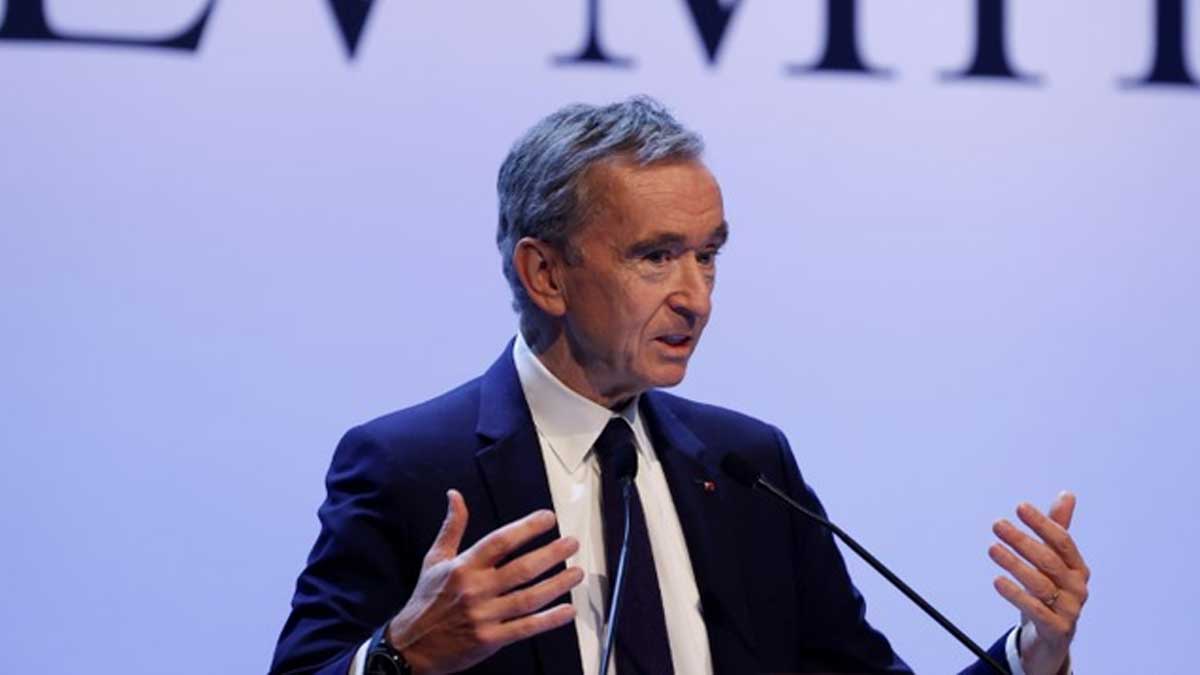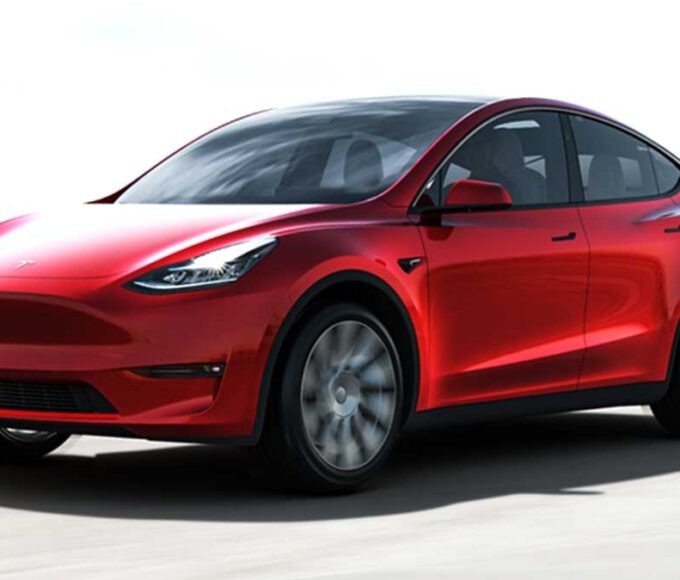- Home
- Billionaires
- Investing Newsletters
- 193CC 1000
- Article Layout 2
- Article Layout 3
- Article Layout 4
- Article Layout 5
- Article Layout 6
- Article Layout 7
- Article Layout 8
- Article Layout 9
- Article Layout 10
- Article Layout 11
- Article Layout 12
- Article Layout 13
- Article Layout 14
- Article Sidebar
- Post Format
- pages
- Archive Layouts
- Post Gallery
- Post Video Background
- Post Review
- Sponsored Post
- Leadership
- Business
- Money
- Small Business
- Innovation
- Shop
Recent Posts
LVMH Reports Disappointing H1 2024 Results

Luxury goods leader LVMH demonstrated resilience in the first half of 2024 with 2% organic growth, although it fell short of analyst expectations and last year’s revenue due to a slowdown in the luxury fashion market. LVMH reported €41.7 billion ($45.2 billion) in revenue for the first half, representing a 1% decrease year-over-year. In the second quarter, the company achieved €20.9 billion ($22.7 billion) in revenue, marking a 1% increase compared to the same period last year. These results did not meet the average analyst estimates, which projected €42.3 billion ($45.9 billion) for the first half and €21.5 billion ($23.3 billion) for the second quarter.
The earnings report had a notable impact on CEO Bernard Arnault’s net worth, which decreased by $135 million, according to real-time billionaire trackers. Despite the overall organic revenue growth of 2% in the first half of 2024 across its core business groups, some segments underperformed. The fashion and leather goods segment saw a modest 1% growth in the second quarter, bolstered by the ongoing success of Dior’s Sauvage and J’adore perfumes. The perfumes and cosmetics business grew by 4% in the second quarter. However, the wine and spirits, as well as watches and jewelry segments, faced revenue declines. The downturn in these segments was largely attributed to low demand in China and the continued struggles of Tiffany & Co., which LVMH acquired but has yet to achieve the desired return due to high staff turnover.
Market response to LVMH’s performance was tepid, with shares declining 7% year-to-date and experiencing a significant 21% slump since March. This trend aligns with other luxury fashion brands that have reported declining sales. Bernard Arnault, who has a net worth of $191 billion, remains the third-richest person globally. Arnault, now 75, transitioned from the construction business to luxury fashion in 1984 by acquiring Christian Dior for $95 million out of bankruptcy. He strategically increased his shares in LVMH amid management conflicts, securing his control by 1989 and integrating Dior into the conglomerate. Today, his empire includes 75 luxury brands spanning fashion, jewelry, beauty, and alcohol.
From 2021 to 2022, LVMH and the broader luxury market saw exceptional growth driven by pandemic savings and financial stimulus, particularly in Asia and the U.S., which accounted for 42% and 26% of revenue by region, respectively. The explosive growth continued into 2022, reaching unprecedented highs for luxury brands. However, the second half of 2023 saw a slowdown due to macroeconomic conditions and geopolitical tensions. These factors led to a decline in consumer spending on luxury goods, particularly among middle-class consumers who previously made up over 50% of global luxury purchases. This key spending group, especially in Asia, cut back on luxury spending due to rising prices across the economy, affecting brands like Burberry and Hugo Boss, which had to slash prices and restructure management.
In April 2023, LVMH became the first European company to reach a $500 billion valuation, with its share price surpassing €900 ($977) after reporting double the expected quarterly sales growth. However, its valuation has since dropped to $375 billion, with a 24% decline in share price from its peak. LVMH’s growth has been significantly driven by its strategic acquisition playbook. The conglomerate has expanded its portfolio by acquiring prominent brands over the decades, including Dom Pérignon, Givenchy, Kenzo, Celine, Sephora, Marc Jacobs, TAG Heuer, Benefit Cosmetics, Fendi, Hublot, Fenty Beauty by Rihanna, and Tiffany & Co. In recent years, it has continued to grow its jewelry operations with acquisitions such as Pedemont Group and Platinum Invest Group, enhancing Tiffany & Co.’s sales by $1.5 billion since its acquisition. In June, LVMH further expanded its portfolio by acquiring Parisian restaurant Chez l’Ami Louis and Swiss clock manufacturer L’Epée 1839.
LVMH is playing a significant role in the upcoming Paris Olympics, with brands like Louis Vuitton, Dior, and Berluti handling sponsorships, while jeweler Chaumet will design the Olympic and Paralympic medals. Moët Hennessy and Sephora will also participate, providing gifts and hospitality. LVMH has committed up to €2 million ($2.17 million) in financial support to the organizing committee, highlighting the conglomerate’s importance in the French economy.
Looking ahead, Gucci parent Kering will announce its first half 2024 earnings on July 25, followed by Hermes on the same day, and Prada Group on July 30. These reports come after recent earnings announcements from Burberry, Hugo Boss, Swatch Group, and Richemont.
Recent Posts
Categories
- 193cc Digital Assets2
- 5G1
- Aerospace & Defense46
- AI37
- Arts3
- Banking & Insurance11
- Big Data3
- Billionaires449
- Boats & Planes1
- Business328
- Careers13
- Cars & Bikes76
- CEO Network1
- CFO Network17
- CHRO Network1
- CIO Network1
- Cloud10
- CMO Network18
- Commercial Real Estate7
- Consultant1
- Consumer Tech180
- CxO1
- Cybersecurity68
- Dining1
- Diversity, Equity & Inclusion4
- Education7
- Energy8
- Enterprise Tech29
- Events11
- Fintech1
- Food & Drink2
- Franchises1
- Freelance1
- Future Of Work2
- Games141
- GIG1
- Healthcare78
- Hollywood & Entertainment186
- Houses1
- Innovation42
- Investing2
- Investing Newsletters4
- Leadership65
- Lifestyle11
- Manufacturing1
- Markets20
- Media193
- Mobile phone1
- Money13
- Personal Finance2
- Policy567
- Real Estate1
- Research6
- Retail1
- Retirement1
- Small Business1
- SportsMoney33
- Style & Beauty1
- Success Income1
- Taxes2
- Travel10
- Uncategorized8
- Vices1
- Watches & Jewelry2
- world's billionaires418
Related Articles
Tesla Recalls 700,000 Vehicles Over Tire Pressure Issue
Tesla has announced its latest recall of nearly 700,000 vehicles in the...
By 193cc Agency CouncilDecember 20, 2024MicroStrategy Stock Rallies on Nasdaq 100 News
Shares of MicroStrategy surged on Monday following the announcement that the company...
By 193cc Agency CouncilDecember 16, 2024Stanley Recalls Millions of Mugs After Burn Injuries
In a significant recall, Stanley, the well-known brand behind popular stainless steel...
By 193cc Agency CouncilDecember 12, 2024Adobe Shares Drop 12% After Lowering Revenue Outlook
Shares of Adobe experienced a significant drop of over 12% on Thursday,...
By 193cc Agency CouncilDecember 12, 2024















Leave a comment